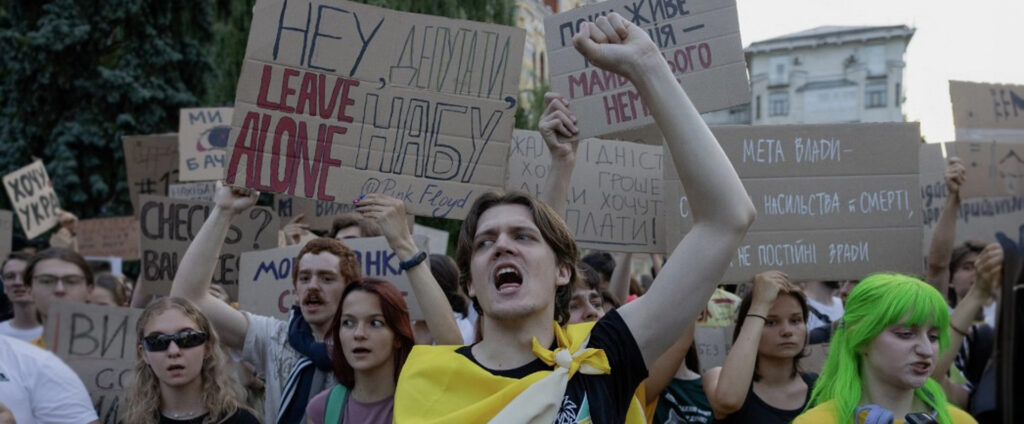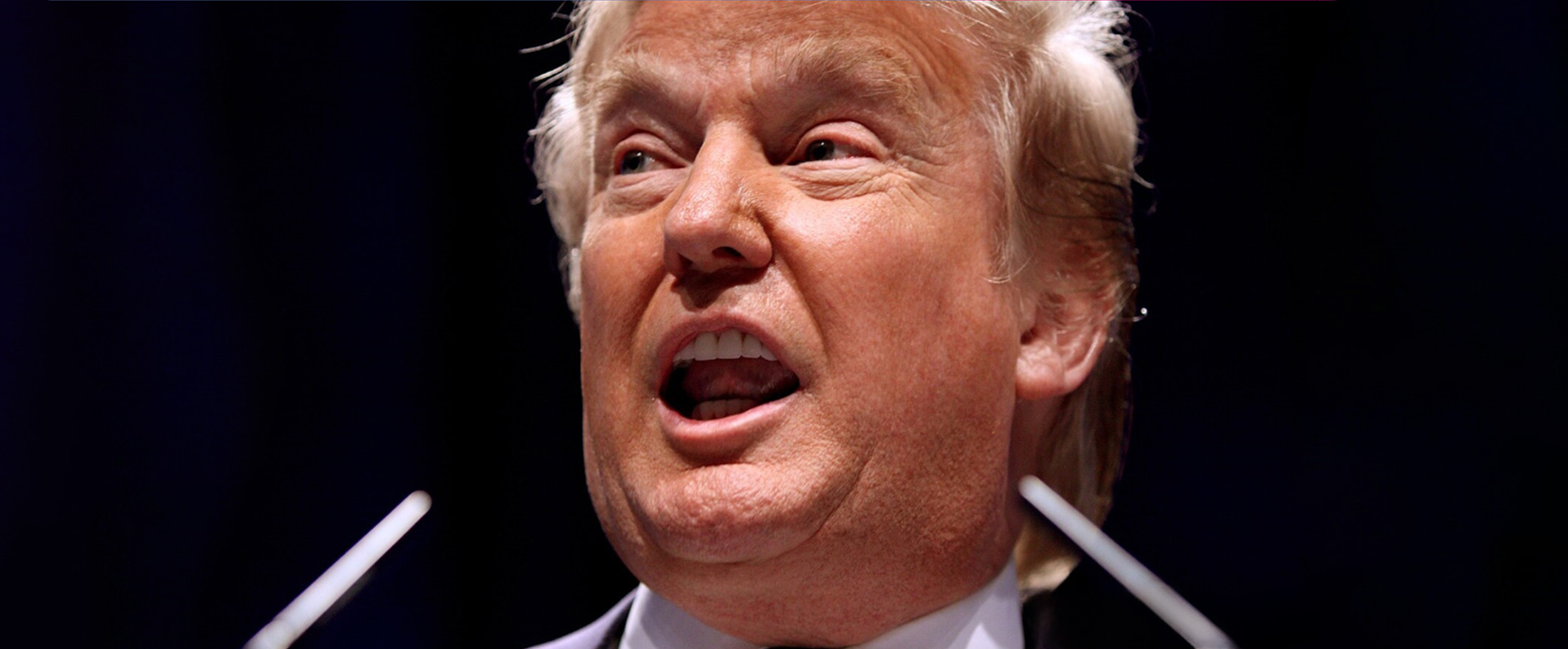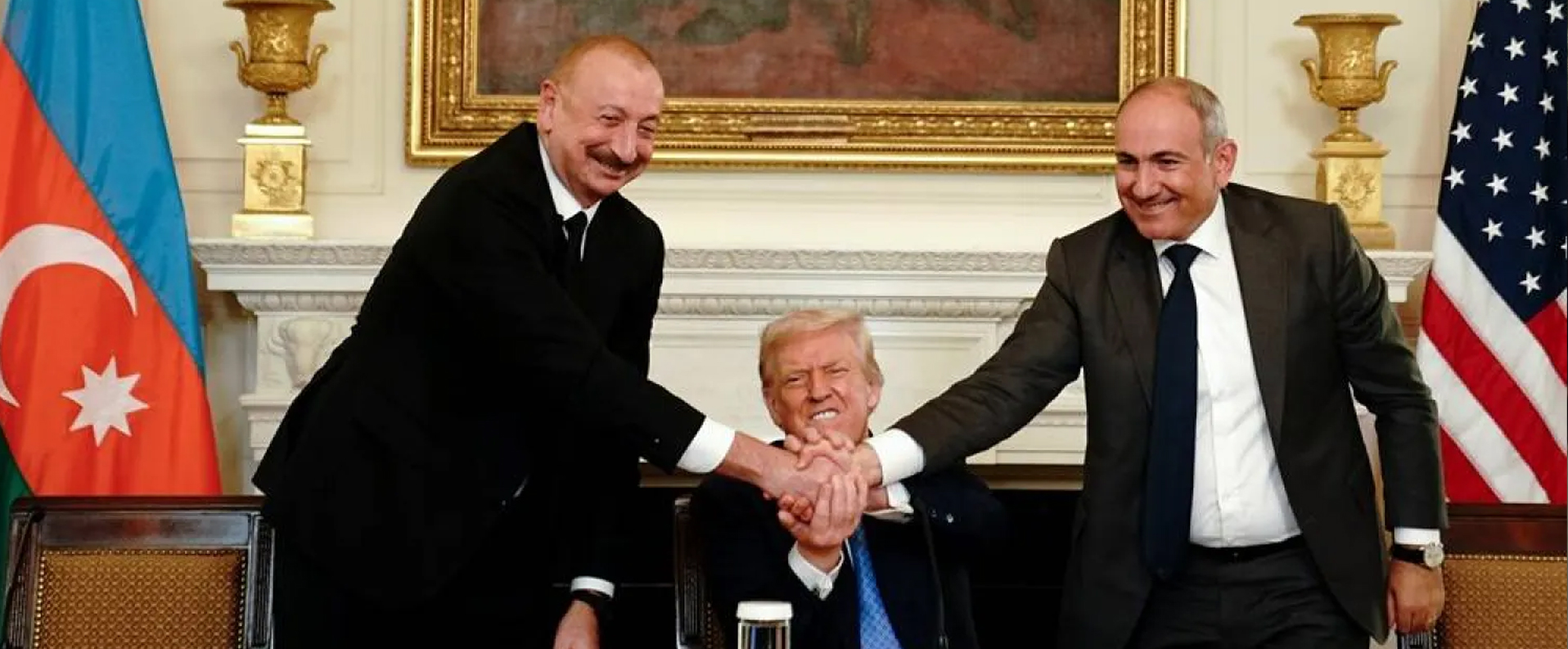
Published on KyivPost.com and ConservativeHome.com on 30 July 2025.
What initially seemed like a presidential power-grab played out as a highly democratic process in which the people exacted a reversal with the pressure of peaceful protest. Ukraine’s recent controversy proves one thing – that it is a robust European democracy.
There is an ironic joke in Ukraine that every 10 years the people take to the streets and launch a revolution. In 2014, they returned to Maidan (Independence Square in Kyiv) to finish what they had started in 2004 during the so-called Orange Revolution. The first national uprising aimed to ensure free and fair elections, resulting in the defeat of pro-Russian presidential candidate Viktor Yanukovych, who lost in a court-mandated rerun, and the victory of pro-Western reformer Viktor Yushchenko.
Fast forward a decade, the people – disillusioned by the failures and quarrels of its new democratic elite – found the same disgraced autocrat Yanukovych in power after a political comeback in 2010. When he refused to sign the long-anticipated EU Association Agreement, threatening to derail Ukraine’s European aspirations, mass protests erupted across the country, forcing Yanukovych and his closest circle to seek refuge in Russia.
In the aftermath of the Revolution of Dignity – as Ukrainians termed their 2014-15 uprising – Ukraine found itself under Russian military assault. Yet they pressed ahead with bold reforms. One of the most significant ones was a sweeping anti-corruption agenda, supported and monitored closely by Ukraine’s Western partners.
What makes Ukraine so resilient? The answer lies in the unshakable will of its people – a fierce desire for freedom that can only be halted with the stop of a heartbeat.
With international assistance, Ukraine created a constellation of new anti-corruption institutions: the National Agency for the Prevention of Corruption (NAZK) to monitor the officials’ assets, the National Anti-corruption Bureau of Ukraine (NABU) to investigate high-level corruption, and the Specialized Anti-Corruption Prosecutor’s Office (SAPO) to prosecute NABU’s cases. The High Anti-corruption Court of Ukraine and the Asset Recovery and Management Agency followed.
These institutions were far from perfect. Over the years, they became entangled in political infighting, allegations of internal misconduct and accusations of selective justice. But the very fact that the scandals were in the public domain was a sign of a growing culture of scrutiny and transparency – something largely absent in Ukraine before 2014.
According to available data, NABU launched over 2,500 investigations since its creation, with around 700 targeting corruption of high-level officials – ministers, MPs, judges or executives at state owned enterprises. SAPO had brought charges in roughly 400 of those cases. The fact that Ukraine sustained such an ambitious anti-corruption agenda even while fighting a brutal war has bolstered international confidence – and helped unlock billions in foreign aid while opening a path toward EU accession.
Some have argued that the damage to Ukraine’s credibility is irreparable. I disagree.
All of this was put at risk last week, when President Zelensky rushed to sign a controversial law passed by Parliament with an overwhelming majority, effectively undermining the independence of NABU and SAPO. The new law sought to transfer powers over appointments of key figures in the agencies to government-controlled bodies, thereby increasing the influence of Parliament and the Presidential Office. Its justification was framed as a wartime necessity, citing the need for tighter accountability and the threat of Russian infiltration within Ukraine’s anti-corruption structures.
Within hours, thousands of Ukrainians took to the streets – once again fulfilling the country’s unofficial decennial revolutionary cycle.
European Union officials reacted swiftly. One by one, allies who had previously celebrated Zelensky as a wartime hero issued firm warnings: the new law crossed red lines and undermined Ukraine’s EU membership. Combined with public outcry at home, this pressure forced Zelensky into a U-turn.
Some have argued that the damage to Ukraine’s credibility is irreparable. I disagree.
Over the past three years, many have asked: what makes Ukraine so resilient? How did a country so unprepared for a full-scale war not only survive, but push back, reclaim territory, and continue governing? After 12 visits to Ukraine, I’ve come to believe the answer lies in the unshakable will of its people – a fierce desire for freedom that can only be halted with the stop of a heartbeat.
Come war, daily bombardments or sleepless nights – Ukrainian people are the ultimate frontier of European democracy.
Ukraine’s fight against corruption is not merely a matter of economic reform or attraction of future investments. It is a strategic front in a hybrid war. Just as Ukraine defends its territory in the Donbas, it must defend its institutions from the internal rot that Russia has long used as a tool of control. For centuries, Moscow has weaponized systemic corruption across countries in its vicinity, understanding that it’s easier to manipulate a state run by a few blackmail-prone elites than a vibrant, rules-based democracy.
Ukraine has now crossed that threshold. The protests erupted despite air raid sirens, and the President’s decision to reverse course within 24 hours in response to public pressure, are a proof of that. But the fight is not over. Zelensky must continue to listen – and lead – in a way that restores unity and trust during this critical geopolitical moment.
Article 5 of Ukraine’s Constitution states that the only source of power in Ukraine is its people. We have just witnessed that principle in action. Come war, daily bombardments or sleepless nights – Ukrainian people are the ultimate frontier of European democracy.



